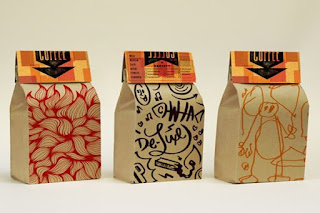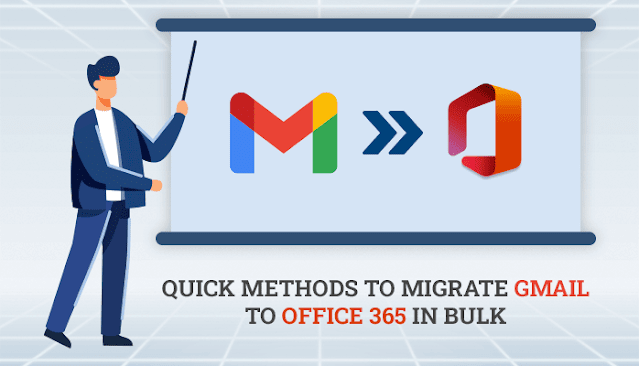Benefits Of Bagged Packaged Goods
Packaged goods are often found in the produce section of your grocery store, but what you might not know is that packaging helps keep food fresh and safe for longer. Packaging also protects the environment by preventing unnecessary waste.
When you buy a bag of chips or a bag of cookies, you are most likely eating a better quality product than if you had bought the same type of snack in a box. These bags often have the added bonus of being more environmentally friendly and easier to store.
What is the Problem with Bagged Packaged Goods?
Bagged packaged goods are a problem because they often end up in the trash. These products are usually wrapped in plastic and paper, which makes it difficult to recycle them. According to the Environmental Protection Agency, only about 30 percent of plastic packaging is recycled. This means that a lot of plastic ends up in landfills or the ocean. The problem with bagged packaged goods is that they take up space in landfills and they harm the environment.
The problem with boxed and bagged packaged goods is that they often contain unhealthy ingredients and unhealthy chemicals.
For example, many boxed cereals that are marketed to children include high levels of sugar, which can contribute to weight gain and other health problems.
Similarly, many processed foods that are packaged in boxes or bags often contain high levels of sodium, fats, and sugars. These types of foods can be very unhealthy for you if you consume them on a regular basis.
The Harmful Effect of Bagged Packaged Goods
Bagged packaged goods are one of the most common types of packaging. They are typically made up of three parts: the box, the bag, and the label. The box is designed to protect the product from damage during shipping and storage. The bag is designed to prevent dirt, dust, and other particles from collecting on the product. The label is designed to inform the consumer about the contents and any warnings or instructions that may be necessary for use of the product.
The main problem with bagged packaged goods is that they are often not recyclable. This means that they take up space in landfills and produce greenhouse gases when they are discarded. Additionally, these products can be difficult to recycle because they often contain plastic components. In some cases, these components can be recycled, but it is often more difficult than recycling other types of packaging.
The negative effects of bagged packaged goods have been documented by researchers around the world. In many cases, these products have been found to cause health problems in consumers who are exposed to them. For example, bagged packaged goods can contain pesticides and other chemicals that can harm the body.
The Solution to the Problem with Bagged Packaged Goods
Bagged packaged goods are a solution to the problem of food waste.
Food waste is the phenomenon of food going to waste that occurs when it is discarded or not eaten. It results from inadequate storage, improper handling, and consumer confusion about what to do with leftovers.
According to the EPA, Americans generated an estimated 190 million tons of food waste in 2016. That’s enough to fill up more than 156 million dumpsters!
In developed countries like the U.S., where supermarkets are ubiquitous, it can be hard to get people to change their habits and reduce their food waste. But as awareness grows about the issue and more people learn about how much food they’re throwing away each year, they’re starting to take action.
There are a lot of benefits to using bagged packaged goods instead of traditional open-air packaging. Here are just a few:
1) It reduces the amount of food that goes to waste.
2) It reduces the amount of energy that is used in packaging and transportation.
3) It reduces greenhouse gas emissions.
4) It helps keep food fresh longer.
Different Types of Bags
The benefits of using bags for packaged goods are clear. They keep products safe and secure, and they can help reduce waste. Here are some specific benefits of using bags for packaged goods:
Bags protect products from damage during transport. If the product is heavy, a bag can help prevent damage to the product or the package itself.
Bags also protect products from moisture and other contaminants. When a product is stored in a bag, it is less likely to become contaminated.
Bags can help reduce waste. When products are packaged in bags, it is often possible to reduce the amount of packaging that needs to be used. This can save money and decrease the amount of waste that is created.
The benefits of using bags for packaged goods are numerous. They can protect the product from damage, keep it fresh and clean, and help it stay organized during shipping. There are a variety of different types of bags available on the market, so it is important to choose the right one for the product being shipped.
CLOTH BAGS: Cloth bags are the most common type of bag used for packaged goods. They are made from cotton or other cloth materials and are often large enough to fit several products together. Because they are made from natural materials, cloth bags can be recycled. They also tend to be less expensive than other types of bags and have a lower environmental impact than plastic or metal bags.
PLASTIC BAGS: Plastic bags are often used as a replacement for cloth bags because they are cheaper and more durable. They can be recycled multiple times, but they can also take up a lot of space in landfill sites if they are not disposed of properly. Because plastic bags often contain chemicals that can be harmful to humans and the environment, they should only be used when necessary and should always be recycled when possible.
Marketing Strategies on Bag Alternatives
Benefits of Bag Alternatives
There are a number of benefits to using bag alternatives, including reducing waste, conserving resources, improving safety and boosting the environment.
Reducing Waste: When you buy packaged goods in a bag, you’re generating waste. Bags take up space and require energy to produce. Instead of buying packaged goods in a bag, consider buying them in bulk or buying fresh items that don’t need to be packaged.
Conserving Resources: When you buy packaged goods in a bag, you’re using up resources that could be used to produce other items. For example, paper bags use energy to manufacture and transport them, and plastic bags can take years to break down. Consider shopping for packaged goods without bags instead.
Improving Safety: Buying packaged goods in a bag increases the risk of injury. Not only is it harder to securely hold a package in your hand, but if the package explodes it can cause serious injury. Consider shopping for packaged goods without bags instead.
Boosting The Environment: Buying packaged goods in a bag generates environmental pollution. Not only do disposable bags take up space and create pollution when they’re produced,
In today's fast paced world, it is more important than ever to have effective marketing strategies. One way to do this is to use bag alternatives.
Bag alternatives are products that are packaged in a way that does not require the use of a traditional bag. This means that these products can be shipped in bulk and handled more easily, which can lead to increased efficiency and decreased costs. Here are some of the benefits of using bag alternatives:
- Reduced environmental impact – When products are packaged in a traditional way, they often end up in landfills or recycling centers. With bag alternatives, however, these packages can be reused or recycled.
- Increased efficiency – Bag alternatives allow for products to be shipped in bulk without the need for extra packaging. This can lead to increased efficiency in the shipping process and decreased costs for companies.
- Increased customer loyalty – Because customers are used to buying products in bulk, using bag alternatives can help businesses build stronger customer relationships.
Conclusion
If you're anything like me, you love getting your hands on something new as soon as possible. Unfortunately, this love of the newest thing can sometimes lead to us spending more money than we should. Luckily, there are a few benefits to shopping in bulk that might make it worth your while to switch to packaged goods from time to time. Not only do these products tend to be cheaper overall, but they also last longer and often have discounts available for buying in bulk. If this sounds like something you could use in your life, then check out our list of the top 10 benefits of shopping in bulk!
Although there are a few negatives to shopping for packaged goods, such as the amount of waste that is created, there are many benefits that outweigh them. Bagged packaged goods tend to be fresher than their aisle-store counterparts, they tend to last longer and they're often less expensive. So if you're looking for convenience, quality and value when it comes to your groceries, consider bagging your own groceries instead of buying in bulk or pre-packaged items.




